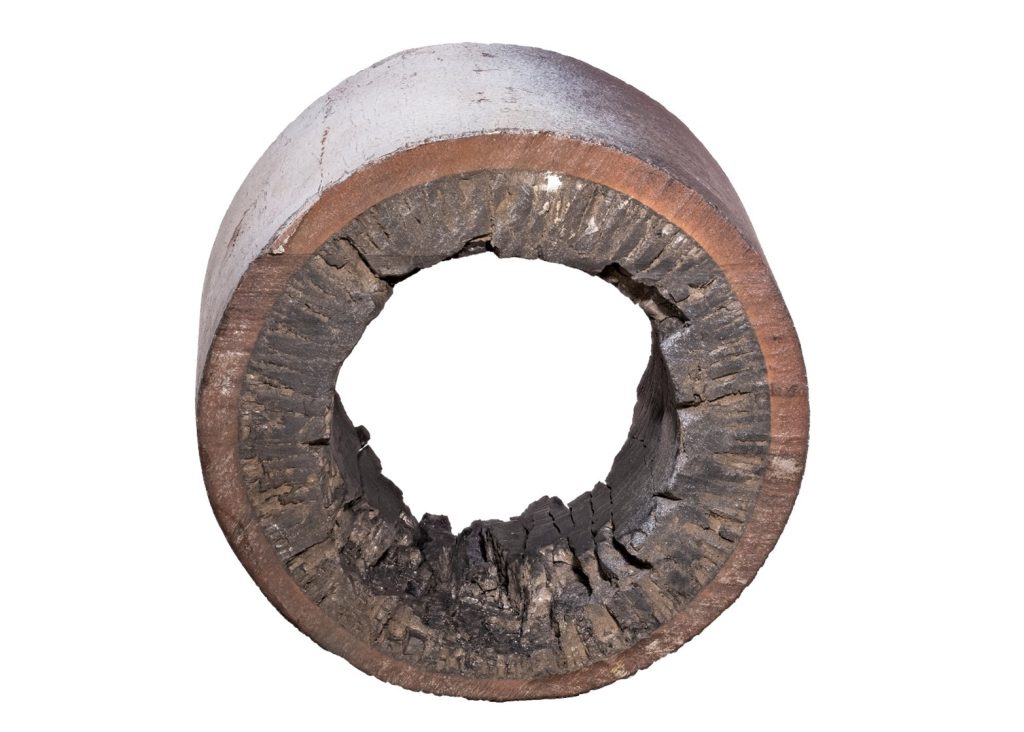
The presence of scaling in water systems at power plants, heating, and cooling plants, and other process facilities can reduce plant efficiency by blocking flow and reducing heat transfer capabilities of piping systems. Scale is a dense coating of predominantly inorganic material formed when water-soluble contaminants precipitate. This coating on surfaces results in poor heat transfer. Scaling may affect both the boiler water and cooling water systems. It is less of a concern for closed cooling water systems.

Scaling is formed by salts that have limited solubility. These salts reach a deposit site and precipitate when concentrated by evaporation. Common contaminants that can form scale deposits include calcium, magnesium, iron, copper, aluminum, silica, and to a lesser extent, silt and oil. Most deposits can be classified as one of two types:
Scaling is typically not a significant problem for closed cooling water systems due to the minimal makeup water needs. This allows the use of otherwise costly high-quality circulating and makeup waters. However, over a long period, even small amounts of hard makeup water will cause a buildup of scaling in the system.
Some common scales in cooling water systems are:
Four major factors determine whether water encourages scaling formation. As any of these factors change, scaling tendencies also change:
Scale results when dissolved ions in the water exceed the solubility. Most salts become more soluble as temperature increases. However, some salts, such as calcium carbonate, become less soluble as temperature increases. Therefore, they often cause deposits at higher temperatures.
A change in pH can significantly affect scale formation. For example, as pH increases, calcium carbonate solubility decreases and eventually precipitates on system surfaces. Some materials such as silica are less soluble at lower alkalinity.
When the amount of scale-forming material dissolved in water exceeds its saturation point, scaling may result. In addition, other dissolved solids may influence scale-forming tendencies. In general, higher levels of scale-forming dissolved solids increase the chance of scaling formation.
There are four basic means to control scaling:
Proper makeup water and cycle water treatment is the best way to control scale formation. Rick Cragg, a project manager for FCS wrote an excellent article on water purification. The National Board of Boiler and Pressure Vessel Inspectors also writes extensively on water cycle maintenance.